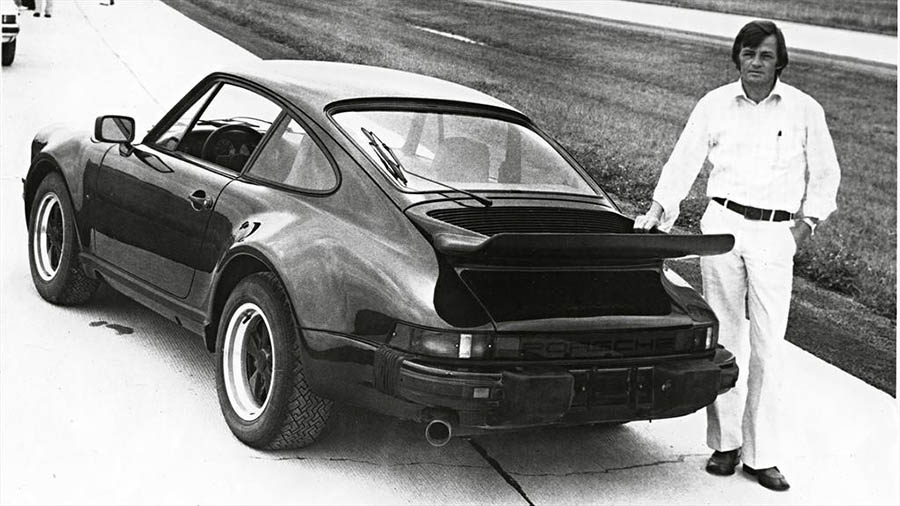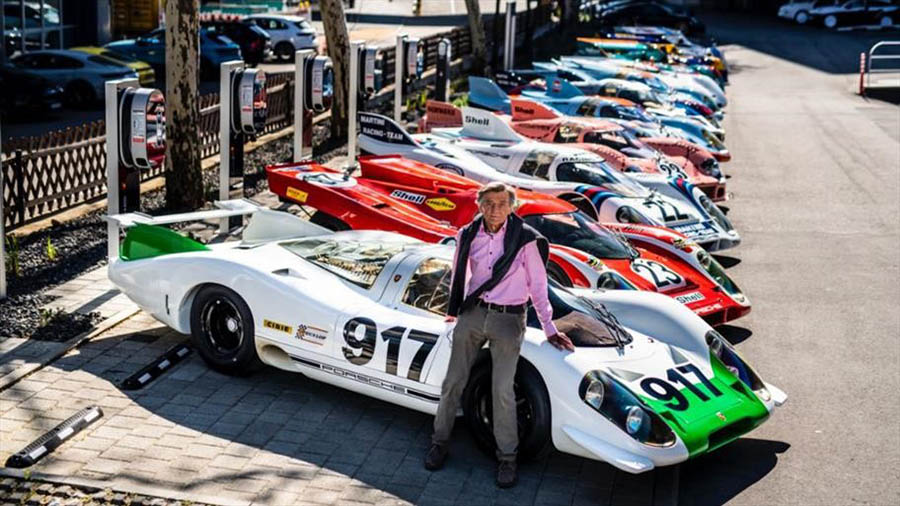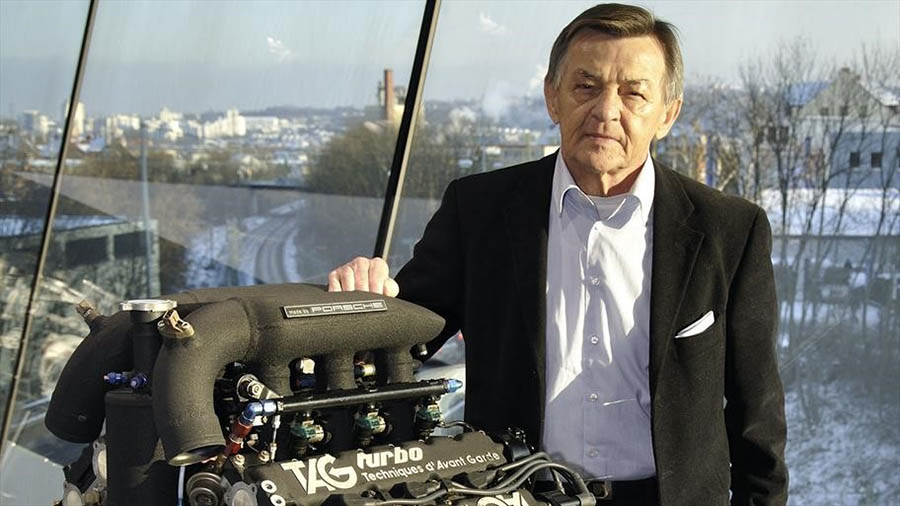Porsche owes him not only the 911 air-cooled six-cylinder boxer engine, but also the overall design of the 917 and its twelve-cylinder engine, as well as the creation of the Formula 1 TAG Turbo engine.

There is always talk of successful managers and CEOs, as well as great designers, but the work of those who give the substance to a car is rarely mentioned. Because let’s agree, a Porsche wouldn’t really be a Porsche if it didn’t have an excellent engine or it didn’t have a successful competition resume. And in the case of those from Stuttgart, that magic is due to someone whose influence is still felt in the brand’s workshops, Hans Mezger, who unfortunately died at the age of 90 on June 10 of this year.
If you are a fan of Porsche, surely you know that there is an engine that bears his name, a 3.6-liter water-cooled six-cylinder, which was mounted on the 911 GT2, GT3 and Turbo of the 996 and 997 generation. The latest incarnation Of this engine, it was carried by the 911 GT3 RS of the 997 generation, although now the engine carries four liters. It sounds incredible since Mezger retired in 1993, but these high-performance engines had their genetics based on the historical engines developed by him in the 1970s. The truth, we could say that there are several Mezger engines, including the engine of the original Porsche 911.
His story
Hans Mezger was born on November 18, 1929 in Ottmarsheim, a town near Stuttgart. And although he was passionate about music, he was also very interested in physics and airplanes. This is how he ended up graduating in engineering at what is now the University of Stuttgart. On April 18, 1945, just three weeks before the war ended, Mezger was spared from going to war by a stroke of luck: a fake medical certificate from a German commander. And since aeronautics was prohibited by the Allies, it had to quickly discard that field. And although company calls poured in, he wanted to go to Porsche, inspired by the 356. Although of course, he had to start from below, in the development of tractors, before he could even get his hands on street cars.
But Mezger climbed fast, being able to start working on four-camshaft engines and even developing a formula to calculate their profiles. Thus he earned a place in the incipient Formula 1 program that Porsche had in the sixties. He participated in the development of the 1.5-liter eight-cylinder Type 753, as well as the corresponding 804 chassis. And since the team was small, he also had to get his hands on the chassis development.

In 1965 he was already part of the sports department of Porsche, having worked on the engine of the original Porsche 911 and on the Ollon-Villars Spyder. By now, he was pretty much in charge of all the Porsche engines. But his status as a highly regarded engineer came after the successes of the 917. In 1968, Mezger took charge of completely conceiving the car and its 12-cylinder engine. This is how during 1970 and 1971 the 917 dominated Le Mans and the Endurance World Championship. In 1972 and 1973, the 917/10 and 917/30 led the CanAm championship thanks to turbocharging, technology that Mezger and his team managed to transfer to street cars in 1974, with the much-loved Porsche 911 (930) Turbo.
And fully into the Turbo era, he took over the design and development of six-cylinder turbo engines and 935 and 936 racing vehicles. In 1977, he perfected Turbo engines with the four-valve, water-cooled system. He even designed the famous Harley-Davidson V4 Nova engine, a very ambitious project for the American brand, which finally never came out of the prototype phase, more because of Harley-Davidson problems than engine development. In that same period, he developed an engine for Indy, based on his work with the 935 and 936. Then, in the early 1980s, he got into Group C competition, developing a 2.65-liter engine based on his previous work.

Mezger was finally established as a legend when he took over Ron Dennis and McLaren’s F1 project, who were looking for a Turbo engine. This 1.5 liter 80 degree V6 was a completely new design and at its maximum specification it would reach 1,000 Hp. Thanks to this engine, in 1984, Niki Lauda became World Champion, succeeded by Alain Prost in 1985 and 1986. The team also won the two World Constructors’ Championships in 1984 and 1985.
Mezger’s influence has reached every corner of the Porsche factory. Even at his long age, he was a man very close to the brand, who even celebrated his 90th birthday.
“His death is a very sad loss for us. Our thoughts are with his family”, commented Michael Steiner, member of the Board of Directors of Porsche AG as head of Research and Development. “We are grateful to Mezger for the extraordinary engineering achievements he made for motorsports in general and for Porsche in particular. Their innovations in our racing cars will always be unforgettable.”









